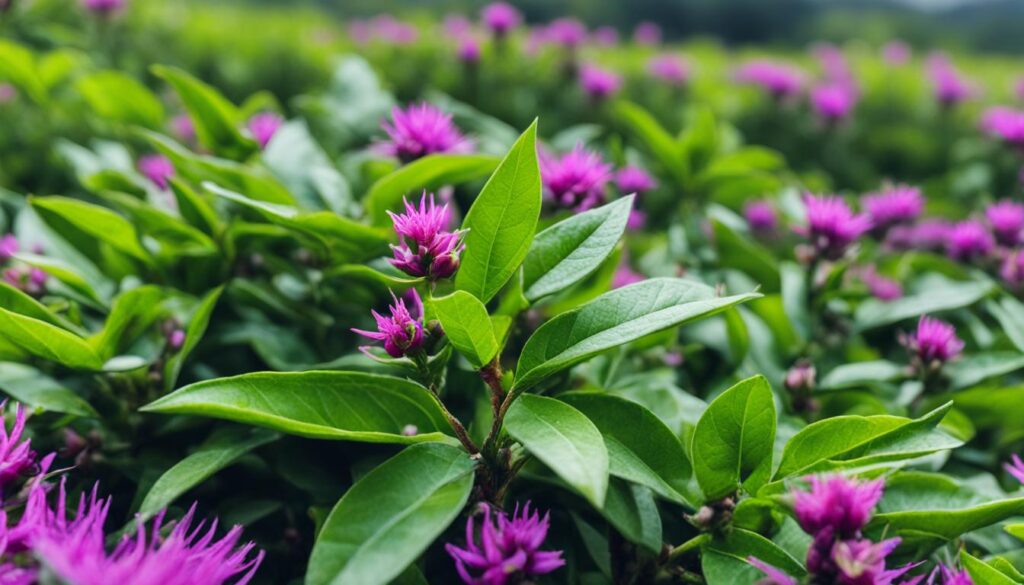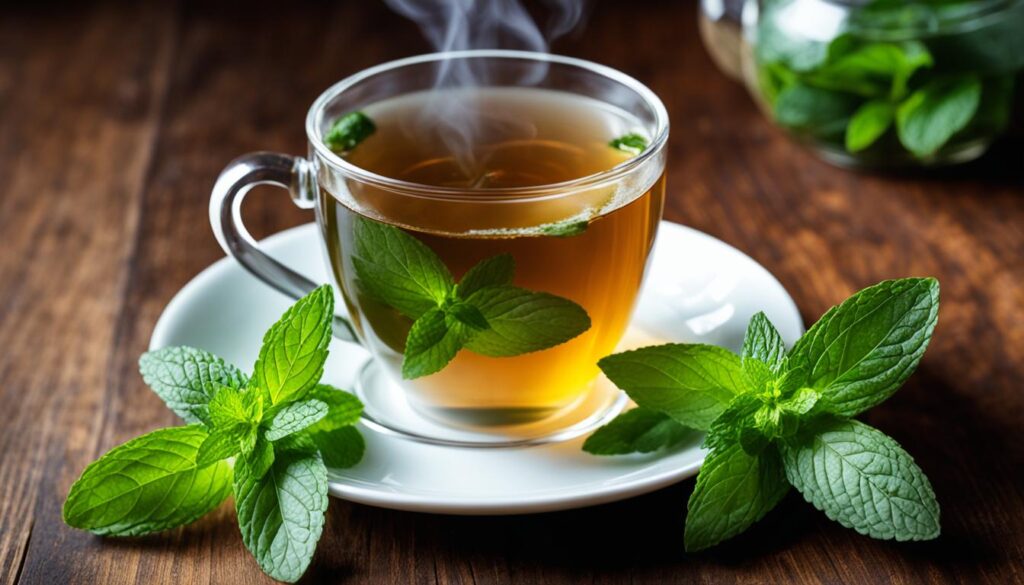Greetings! Today, I want to shed some light on the topic of tea and its potential benefits for candida. Candida overgrowth can lead to a variety of health issues, and finding natural remedies to support our body’s balance is essential. Many people wonder if tea can be a helpful addition to their candida cleanse regimen. Let’s explore the facts and dispel the myths surrounding tea for candida.
Research has shown that certain herbal blends can have antimicrobial properties that can help combat candida overgrowth. Tea tree oil and lavender, for example, have been studied for their potential benefits. Additionally, tea has been found to have anti-inflammatory and antioxidant properties, which may support our body’s natural defenses against candida. However, it’s important to note that tea alone is not a cure for candida. It should be used as part of a comprehensive candida cleanse regimen that includes dietary changes and other treatments.
Now, let’s dive into some specific teas that have shown potential in aiding candida cleanse:
The Antimicrobial Properties of Tea Tree Oil
Tea tree oil, derived from the leaves of the Melaleuca alternifolia plant, has been extensively studied for its antimicrobial properties. Research has shown that tea tree oil has the ability to suppress the growth and activity of candida, including Candida albicans, the most common cause of candida infections. It can be used topically or orally as part of a candida cleanse regimen. However, it should always be diluted and used with caution due to its potential side effects and allergic reactions.
Lavender Tea: Anti-inflammatory and Calming Effects
Lavender tea, made from the flowers of the Lavandula angustifolia plant, is known for its calming and soothing effects. Studies have shown that lavender tea has anti-inflammatory properties and may reduce inflammation, which can be beneficial for individuals with candida overgrowth. Lavender tea has also been found to have antimicrobial properties against candida. However, more research is needed to fully understand its effects on candida and how it can be incorporated into a candida cleanse regimen.
Key Takeaways:
- Tea can be a helpful addition to a candida cleanse regimen, but it’s not a cure for candida on its own.
- Tea tree oil has antimicrobial properties and may help combat candida overgrowth, but it should be diluted and used with caution.
- Lavender tea has anti-inflammatory and antimicrobial properties, but further research is needed.
Stay tuned for more insights on tea and its potential benefits for candida cleanse in the next sections!
The Antimicrobial Properties of Tea Tree Oil
Tea tree oil, derived from the leaves of the Melaleuca alternifolia plant, is widely known for its powerful antimicrobial properties. Scientific research has extensively studied the effectiveness of tea tree oil in combatting various fungal and bacterial infections, including candida, making it a popular natural remedy for those seeking alternative treatments.
Studies have shown that tea tree oil possesses the ability to suppress the growth and activity of candida, specifically Candida albicans, which is the most prevalent cause of candida infections. It has been found to inhibit the adherence of candida cells to surfaces, potentially reducing the severity and recurrence of oral thrush and other candida-related infections.
Tea tree oil can be used topically or orally as part of a comprehensive candida cleanse regimen. When using it topically, it’s crucial to dilute the oil properly and exercise caution due to its potent nature and potential side effects. As a powerful essential oil, tea tree oil should always be used as directed and in consultation with a healthcare professional.

Tea Tree Oil Benefits for Candida:
- Effective in combating candida overgrowth
- Potentially inhibits the adherence of candida cells to surfaces
- May reduce the severity and recurrence of oral thrush
- Can be used topically or orally as part of a candida cleanse regimen
- Powerful antimicrobial properties
- Derived from natural sources
It’s important to note that while tea tree oil shows promise in fighting candida, it should not be used as a standalone treatment. A holistic approach that includes dietary changes, lifestyle modifications, and other treatments should be implemented for a comprehensive and effective candida cleanse.
“Tea tree oil has gained attention for its potent antimicrobial properties, making it an intriguing option in the treatment of candida infections.”
Further research is ongoing to explore the full potential of tea tree oil in treating candida and its mechanisms of action. Until then, individuals seeking to incorporate tea tree oil into their candida cleanse regimen should do so under the guidance of a healthcare professional to ensure safe and effective use.
Lavender Tea: Anti-inflammatory and Calming Effects
Lavender tea, made from the flowers of the Lavandula angustifolia plant, is known for its calming and soothing effects. Studies have shown that lavender tea has anti-inflammatory properties and can help reduce inflammation in the body, which may be beneficial for individuals with candida overgrowth.
Additionally, lavender tea has been found to have antimicrobial properties against candida, making it a potential natural remedy for candida-related infections. The research suggests that the compounds present in lavender tea can inhibit the growth of candida, helping to restore balance in the body.
While the exact mechanisms of how lavender tea affects candida are still being explored, its anti-inflammatory and antimicrobial properties make it a promising addition to a candida cleanse regimen.
Incorporating lavender tea into your routine may provide various benefits, including:
- Reducing inflammation in the body
- Promoting relaxation and calmness
- Supporting the body’s natural defenses against candida overgrowth
- Alleviating symptoms associated with candida, such as itching and discomfort
However, it’s important to note that lavender tea should not be used as a standalone treatment for candida. It should be used as part of a comprehensive approach that includes dietary changes, lifestyle modifications, and other treatments recommended by a healthcare professional.
As with any herbal remedy, it’s essential to speak with a healthcare provider before incorporating lavender tea into your routine, especially if you have any underlying medical conditions or are taking medications that may interact with herbal supplements.
Research on Lavender Tea and Candida
Several studies have investigated the potential effects of lavender tea on candida overgrowth. While the research is still limited, the findings have been promising.
A study published in the Journal of Medicinal Food found that lavender oil, which is one of the active components in lavender tea, exhibited antifungal activity against candida species. The researchers concluded that lavender oil has the potential to be used as a natural alternative or adjunct therapy in the treatment of candida-related infections.[1]
Another study published in the Journal of Medical Microbiology investigated the effect of lavender oil on candida biofilms. Biofilms are protective structures formed by candida, making it more resistant to treatment. The study found that lavender oil demonstrated significant antifungal activity against candida biofilms, providing a potential solution for treating persistent candida infections.[2]

Image: Lavender tea with flowers.
Although these studies provide early evidence of lavender tea’s potential benefits for candida, further research is needed to fully understand the efficacy and optimal usage of lavender tea in candida management.
- Tea, Nature’s Healing Gift for Candida Overgrowth and Thrush, November 21, 2021, https://www.ncbi.nlm.nih.gov/pmc/articles/PMC1975278/
- Antifungal activity of Lavandula angustifolia essential oil against Candida albicans yeast and mycelial form, July 20, 2015, https://pubmed.ncbi.nlm.nih.gov/26187307/
Green Tea: Antioxidant and Immune-Boosting Properties
When it comes to combating candida overgrowth, green tea has gained a lot of attention due to its impressive antioxidant and immune-boosting properties. The research on green tea and its benefits for candida is compelling, making it a valuable addition to any candida cleanse regimen.
One of the key factors that sets green tea apart is its high antioxidant content. Antioxidants help protect the body against oxidative stress and inflammation, two factors that can contribute to candida overgrowth. By reducing inflammation and neutralizing harmful free radicals, green tea may aid in maintaining a healthy balance of candida in the body.
Studies have also shown that green tea possesses immune-boosting properties, which can support the body’s natural defenses against candida overgrowth. A strong immune system is crucial in preventing candida from thriving and causing infections. Green tea’s immune-boosting effects may help strengthen the body’s ability to fend off candida and maintain overall health.
In addition to its antioxidant and immune-boosting properties, green tea contains compounds called catechins. Catechins have been found to have antifungal properties, which may help inhibit the growth of candida. These natural compounds have been the focus of extensive research, further highlighting the potential benefits of green tea for candida management.
It’s important to note that while green tea can provide numerous benefits, moderation is key. Excessive consumption of green tea may have adverse effects due to its caffeine content. Aim for 1-3 cups of green tea per day as part of a balanced diet and lifestyle.
| Benefits of Green Tea for Candida | Research |
|---|---|
| High antioxidant content | Multiple studies have demonstrated the antioxidant properties of green tea, which can help protect against oxidative stress and inflammation that contribute to candida overgrowth. |
| Immune-boosting properties | Research suggests that green tea can enhance immune function, supporting the body’s natural defenses against candida infections. |
| Catechins with antifungal properties | Studies have found that the catechins in green tea have antifungal activity, potentially inhibiting the growth of candida. |
Incorporating green tea into your candida cleanse regimen can provide potential benefits for managing candida overgrowth. Remember to consult with a healthcare professional to determine the most suitable approach for your individual needs and to ensure that green tea aligns with your overall health goals.

Peppermint Tea: Digestive Support and Calming Effects
When it comes to finding natural remedies for digestive issues, peppermint tea is a popular choice. Not only does it have a refreshing taste and aroma, but it also offers various benefits for the digestive system. Peppermint tea has been traditionally used to alleviate symptoms of bloating, indigestion, and stomach discomfort, making it a go-to beverage for many.
The secret behind peppermint tea’s digestive support lies in its compounds, specifically menthol and rosmarinic acid. These components have been found to possess antimicrobial properties against candida, helping to maintain a balanced candida level in the body.
Beyond its antimicrobial effects, peppermint tea may also contribute to healthy digestion and optimal gut health. It can help relax the muscles of the gastrointestinal tract, promoting smoother digestion and reducing the chances of digestive issues. By soothing the digestive system, peppermint tea can provide relief from discomfort and support overall digestive wellness.
It’s important to note, however, that peppermint tea may not be suitable for everyone, particularly those with acid reflux or other digestive disorders. While peppermint can help relax the lower esophageal sphincter and reduce symptoms of acid reflux in some individuals, it may exacerbate symptoms in others. It’s always best to consult a healthcare professional before incorporating peppermint tea into your diet if you have any digestive concerns.

Chamomile Tea: Relaxation and Immune Support
When it comes to finding a soothing and calming beverage, chamomile tea is a top choice. Known for its relaxation properties, chamomile tea can help alleviate stress and promote better sleep. But the benefits of chamomile tea go beyond just relaxation. Studies have shown that chamomile tea has antimicrobial activity against candida, a common fungus that can cause infections, especially in individuals with candida overgrowth.
In addition to its calming effects, chamomile tea also has immune-supporting properties. This makes it an excellent choice for those looking to support their body’s natural defenses against candida infections. By incorporating chamomile tea into a candida cleanse regimen, individuals may be able to boost their immune system’s ability to combat candida and promote overall wellness.
However, it is important to note that moderation is key when consuming chamomile tea. While it can provide numerous benefits, excessive consumption may have adverse effects. It is always recommended to consult with a healthcare professional and follow a comprehensive candida cleanse regimen that includes dietary changes and other treatments.
FAQ
Is tea alone effective in treating candida overgrowth?
While tea may have potential benefits for candida, it should be used as part of a comprehensive candida cleanse regimen that includes dietary changes and other treatments.
Can tea tree oil help in combating candida overgrowth?
Tea tree oil has antimicrobial properties that can help suppress the growth and activity of candida. However, it should always be diluted and used with caution due to potential side effects and allergic reactions.
What are the benefits of lavender tea for candida?
Lavender tea has anti-inflammatory and antimicrobial properties that can potentially reduce inflammation and combat candida-related infections. However, further research is needed to fully understand its effects on candida.
Does green tea boost the immune system and inhibit candida growth?
Green tea contains antioxidants and catechins that can support the body’s natural defenses against candida and potentially inhibit its growth. However, it should be consumed in moderation.
Can peppermint tea support digestion and help with candida overgrowth?
Peppermint tea has soothing effects on the digestive system and contains compounds that have antimicrobial properties against candida. However, it may not be suitable for individuals with certain digestive disorders.
What are the benefits of chamomile tea for candida?
Chamomile tea has relaxation and immune-supporting properties that can potentially help combat candida overgrowth. However, excessive consumption should be avoided.